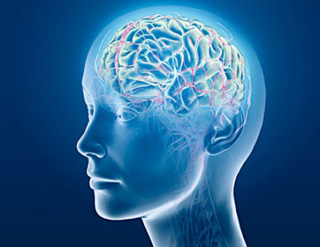 |
Monday, 21 May 2012
Neuroplasticity, Changing our Belief about Change
Mood:
 a-ok
Topic: Hypnosis & Psychology a-ok
Topic: Hypnosis & Psychology

A dangerous belief in our culture is that we can't change. We’ve all heard the disempowered statements: “He’s just grumpy. He can’t change that.” or “I will always be anxious. It's the way I was born.” While we most certainly have genetic predispositions, the brains of individuals’ young and old can change in amazing ways. Neuroplasticity is a fancy way of saying that our brains can change. We are not victims of our neurons or genes. We are empowered creators of our mental states. The erroneous belief that we are "set in stone" can stop people from trying to change and take away their responsibility. In the same way that germ theory altered the way we look at sanitation and hygiene, I think that spreading the knowledge about our brain’s ability to change can alter the way our culture approaches emotions, attitudes, and values. Our brains can change. Our brains are made up of billions of neurons. Neurons connect to one another, forming pathways that relay information. We learn things by forming neural connections in response to associations in our everyday experiences. In learning to drive a car, we experience the connection between red traffic lights and pressing the brake. We form a neural pathway for this association. Each time we brake at a red light, we reinforce and strengthen the neural pathway. As the saying goes, "Neurons that fire together, wire together." The more we practice something, the more we strengthen the pathway, and the easier the skill becomes. Our behavioral response can become almost automatic. Our brain can also prune old neural pathways to quiet or unlearn associations. For example, after you move to a different home, you learn the directions to your new place and stop practicing your old path. But in those first few weeks after a move, have you ever found yourself engrossed in another thought and accidentally pulling into the driveway of your old home because your automatic pathway took over? Luckily, by refraining from the old directions and practicing the new way home, you strengthen a new neural pathway and the old neural pathway weakens. It's a good thing our brains can change, or we would still be pulling up to our childhood home. Similar to physical skills like driving, the brain also forms neural pathways in learning and practicing emotional skills. Your emotional responses to experiences in your world are the result of well-worn neural pathways that developed over your lifetime. While our genes influence our temperament, research has demonstrated that our environment and our own mind can physically alter our brains and thus our emotional responses. This means that emotions that we want more of in our life and our world, like happiness, patience, tolerance, compassion, and kindness, can be practiced and learned as skills. Other emotions, like anxiety, stress, fear, or anger, can be dampened. Keeping in the car motif, let’s talk about an emotional association: traffic and anger. When we get stuck in traffic, an automatic response can be anger or frustration. But, by feeling angry every time we are in traffic, we are strengthening that neural pathway and cementing that emotional response. When there is nothing we can do in that moment but accept the traffic, wouldn’t it be great to feel positive emotions instead? We can just observe the negative emotion that we are feeling and try practicing a different emotional response. We can start linking traffic with stillness and peace. This would be difficult at first because we want to let the well-developed neural pathway leading to anger fire, but by inhibiting that pathway, we help unwire those connections and strengthen a different response. As we practice responding with peace, we strengthen a new neural pathway and it becomes easier to choose. Using neuroimaging, researchers have demonstrated significant success in reducing anxiety, depression, phobia, and stress with cognitive-behavioral therapy or interpersonal psychotherapy. By learning different strategies to recognize negative thoughts and emotions and practice alternative responses over time, neural pathways in the brain are physically altered. Science has only recently recognized the value of investing in research on behaviors that promote well-being, including compassion and happiness. By comparing the brains of experts and novices in compassion meditation, neuroscientists illustrated changes in the brain region responsible for empathy during and after meditation. Researchers are just beginning to examine the effect of training novices in skills to increase compassion. While interventions have demonstrated positive impacts on emotional states and prosocial behaviors, we look to future studies to determine alterations in the structure and function of the brain in novices who undergo contemplative and emotional training.
Let's learn and practice compassion, kindness, and happiness. Knowing that our brains can change, we then ask, what do we want in our brains? And as a result, what do we want in our world? Most people of good will yearn for happiness, compassion, and love. Let’s start practicing. Gratitude reflections, compassion priming, and meditation interventions are some strategies found to enhance well-being and increase prosocial behavior. Several studies have shown the positive impact of gratitude journals, which involve self-guided listing of what you are thankful for. Individuals who kept a daily gratitude journal reported higher levels of positive emotions, including feeling attentive, determined, energetic, enthusiastic, excited, interested, joyful, and strong, compared to individuals who kept a journal on daily hassles or ways in which one was better off than others (downward social comparison). In addition, individuals who maintained daily gratitude journals were more likely to offer emotional support to others and help someone with a problem7. Contemplative interventions, born from the collaboration of meditation traditions and emotion science, have centered on developing mindfulness to enhance compassion and happiness in the lives of individuals. One recent study provided an 8-week training program in secular meditation to female schoolteachers and measured their responses to stress, conflict, and compassion. The intervention significantly reduced rumination, depression, and anxiety while increasing mindfulness, empathy, compassion, and stabilizing hostility and contempt compared to a control group6. In my experience, learning about the concept of neuroplasticity and finding the skills to change my emotional responses has immensely improved my life. Before grasping this, I thought my mind was a black box. I didn't understand why I felt certain things beyond the immediate external circumstances. I had no idea how to change things. I scoffed at seeing a therapist because I couldn't imagine what they would help me with. I had no idea what I would even say to a therapist. Luckily, the good ones can help you understand your mind and the process of change. You don't even have to know where to start; the decision to change is enough. The practice of meditation gave me the set of skills to guide my own transformation. It has been the most life altering skill that I have gained. I shifted from thinking that my emotion and thoughts owned me to feeling like I could play a role in changing my state. This is challenging work and takes patient practice, but as I am experiencing the fruits of these skills, peaceful relationships, a joyful outlook on life, and a safe harbor within myself during difficult times, I am determined to work even harder. Neuroscience, positive psychology, and contemplative traditions have given us a roadmap. We know our brains can change based on our environment and our behaviors. What if we started building and reinforcing the neural pathways of love, cooperation, forgiveness, and kindness so that these things became our automatic response? What if we adopted and shared this belief that we can change and took responsibility for our outlook on life? What if we taught children in schools about their ability to reflect on and guide their emotions? What if we started priming those around us in our families and community with our own grateful reflections and kind actions? What if our compassionate actions in schools, families, and communities started shifting our culture? I find these possibilities exhilarating and hopeful. By learning and practicing these positive emotional responses, I think our world can discover a new way home and pull into the driveway of compassion. Full Story from dailygood.org
Posted by Neil Bartlett DHyp M.A.E.P.H
at 01:01 MEST
Updated: Monday, 21 May 2012 10:03 MEST
Sunday, 20 May 2012
What Causes Deja Vu?
Mood:
 chatty
Topic: Hypnosis & Psychology chatty
Topic: Hypnosis & Psychology

That distinct illusion of having been there and done that has no explanation. The parapsychologist will tell you it's a past life experience. Yogi Berra will remind you it seems like you've felt it before. And most scientists will throw their hands up. Some believe déjà vu involves emotional responses to similar events; others figure the brain short circuits, sending an event to memory just a split second before putting it into consciousness. Its fleeting nature makes déjà vu about as easy to study as the afterlife. Some people have a chronic variety, though, and so one study is attempting to get inside their minds. Full Story from lifeslittlemysteries.com
Posted by Neil Bartlett DHyp M.A.E.P.H
at 01:01 MEST
Updated: Sunday, 20 May 2012 02:22 MEST
Saturday, 19 May 2012
DNA-Destroying Chip Being Embedded Into Mobile Phones
Mood:
 d'oh
Topic: Conspiracy / Corruption d'oh
Topic: Conspiracy / Corruption

According to Dr. Boian Alexandrov at the Center for Nonlinear Studies at Los Alamos National Laboratory in New Mexico, terahertz (THz) waves destroy human DNA. The waves literally unzip the helix strand. Now a team of technologists at UT Dallas are planning to take chips broadcasting THz waves and embed them into mobile phones for use as an imaging system for consumers, law enforcement and medical personnel… a potentially deadly technology that could eventually kill or sicken millions of people. The controversial THz scanner technology used by the TSA at many of the nation’s airports is being adapted for cell phone use. Studies of terahertz radiation have caused experts to raise alarms over the significant health risks to humans. Recently major media touted a new chip that permits the adaption of a THz generating device to be embedded into cellular phones. Full Story from fourwinds10.net
Posted by Neil Bartlett DHyp M.A.E.P.H
at 01:01 MEST
Updated: Saturday, 19 May 2012 02:05 MEST
Friday, 18 May 2012
Understanding Karma
Mood:
 bright
Topic: Hypnosis & Psychology bright
Topic: Hypnosis & Psychology

One of the most misunderstood notions in Eastern thought is that of karma. In the West, we often think about good karma and bad karma --- you do something good, good will come back to you; you do something bad, and bad will come back. In fact, nothing could be further from the truth. Karma is about action, non-action, responsibility, accountability and consequence. Karma literally means ‘action'. Karma Yoga is the yoga of action. What that means, in the context of the Yoga tradition, is lending ourselves to society and being of service to other human beings. One of the most familiar of Karma Yogis in modern times is Ram Dass who, along with being a primary voice for spiritual awakening in the West, established the Seva Foundation, which provides spiritual support to the dying. Another familiar person who falls into this category would be Mother Teresa, whose Missionaries of Charity are familiar to almost all of us. Full Story from psychologytoday.com
Posted by Neil Bartlett DHyp M.A.E.P.H
at 01:01 MEST
Updated: Friday, 18 May 2012 01:46 MEST
Thursday, 17 May 2012
Secret sugars in your food!
Mood:
 chatty
Topic: Health chatty
Topic: Health

Are you feeling virtuous about your healthy breakfast of wholegrain cereal washed down with a glass of orange juice? After all, it’s better than an artery-clogging fry-up. In terms of fat, at least. But few of us realise that a bowl of Bran Flakes plus juice will account for half our recommended daily amount of sugar. We all know the dangers of too much salt, fat and calories in our diet, but health professionals warn that not enough of us stop to consider our sugar intake. Full Story from dailymail.co.uk
Posted by Neil Bartlett DHyp M.A.E.P.H
at 01:01 MEST
Updated: Thursday, 17 May 2012 02:05 MEST
Wednesday, 16 May 2012
Is Free Will an Illusion?
Mood:
 bright
Topic: Hypnosis & Psychology bright
Topic: Hypnosis & Psychology

Are you really in control, or is your every decision predetermined? Who's at the steering wheel: you, your genes, your upbringing, fate, karma, God? A hot topic for several thousand years, the question of whether free will exists may never be settled to everyone's satisfaction. But in a series of new articles for the Chronicles of Higher Education, six academics from diverse fields offer fresh perspectives from the standpoints of modern neuroscience and philosophy. Ultimately, they voted 4-2 in favor of the position that free will is merely an illusion. The four scientists on the panel denied the existence of free will, arguing that human behavior is governed by the brain, which is itself controlled by each person's genetic blueprint built upon by his or her life experiences. Meanwhile, the two philosophers cast the dissenting votes, arguing that free will is perfectly compatible with the discoveries of neuroscience. Full Story from lifeslittlemysteries.com
Posted by Neil Bartlett DHyp M.A.E.P.H
at 01:01 MEST
Updated: Wednesday, 16 May 2012 01:30 MEST
Tuesday, 15 May 2012
Potatoes, the ultimate wonder food
Mood:
 happy
Topic: Health happy
Topic: Health
Ignored by dieters because they are 'fattening', few would class the potato as a 'wonder food' packed full of vitamins, minerals and nutrients.
But the spud is actually better for the body than traditional superfoods - such as bananas, broccoli, beetroot, nuts and avocado, a study has found. The researchers said people are wrong to shun it in favour of modern and more expensive alternatives. A jacket potato has five-and-a-half times as much fibre as the average banana - and is packed with more vitamin C than is found in three avocados, the Daily Express reported. Last year a separate study discovered that eating spuds twice a day can lower blood pressure - and contrary to popular perceptions it won't make you put on weight. Full Story from dailymail.co.uk
Posted by Neil Bartlett DHyp M.A.E.P.H
at 01:01 MEST
Updated: Tuesday, 15 May 2012 02:05 MEST
Monday, 14 May 2012
Author claims Jack the Ripper was a WOMAN
Mood:
 cheeky
Topic: Jack the Ripper cheeky
Topic: Jack the Ripper
A BIRMINGHAM author has caused a storm among historians by claiming Jack the Ripper was a WOMAN.
Former solicitor John Morris, 62, has named Welsh-born Lizzie Williams as the Whitechapel monster – and claims she killed her victims because she could not have children. Lizzie was wife of royal physician Sir John Williams, himself seen as a prime suspect by many other crime experts. John’s new book, Jack the Ripper: The Hand of a Woman, was written along with his late father Byron. The men sifted through thousands of medical and legal documents to draw-up a compelling case for branding Lizzie the killer. Full Story from birminghammail.net
Posted by Neil Bartlett DHyp M.A.E.P.H
at 01:01 MEST
Updated: Monday, 14 May 2012 02:02 MEST
Sunday, 13 May 2012
Global Police State: You Are All Suspects Now!
Mood:
 irritated
Topic: Conspiracy / Corruption irritated
Topic: Conspiracy / Corruption

You are all potential terrorists. It matters not that you live in Britain, the United States, Australia or the Middle East. Citizenship is effectively abolished. Turn on your computer and the US Department of Homeland Security's National Operations Center may monitor whether you are typing not merely "al-Qaeda", but "exercise", "drill", "wave", "initiative" and "organisation": all proscribed words. The British government's announcement that it intends to spy on every email and phone call is old hat. The satellite vacuum cleaner known as Echelon has been doing this for years. What has changed is that a state of permanent war has been launched by the United States and a police state is consuming western democracy. Full Story from scott.net
Posted by Neil Bartlett DHyp M.A.E.P.H
at 01:01 MEST
Updated: Sunday, 13 May 2012 03:52 MEST
Saturday, 12 May 2012
Life as a Conscious Practice
Mood:
 happy
Topic: Hypnosis & Psychology happy
Topic: Hypnosis & Psychology

"Everything is Practice." ~Pele When we learn a martial art, or ballet, or gymnastics, or soccer … we consciously practice movements in a deliberate way, repeatedly. By conscious, repeated practice, we become good at those movements. Our entire lives are like this, but we’re often less conscious of the practice. Each day, we repeat movements, thought patterns, ways of interacting with others … and in this repeated practice, we are becoming (or have already become) good at these things. If you constantly check Facebook or Twitter, that is practice, and you are forming that habit, though it’s usually not with too much awareness. When you smoke, or eat junk food, or speak rudely to others, or put yourself down internally, this is something you are practicing to be good at. You may already be good at these things. What if, instead, we practiced consciously, deliberately, and became good at the things we really want to be good at? What if you first, above all skills, learned to be more aware of what you are practicing? What if constant conscious action is the skill you became good at? If you could learn to take conscious action, you could learn to practice other things you want to be good at, rather than the ones you don’t. What Are You Practicing? Ask yourself these things throughout the day, to practice conscious action: * Do I want to practice rushing through my morning, or can I wake a little earlier and simplify my morning routine so that I practice a slow, enjoyable morning ritual? * Do I want to practice checking my inboxes when I first get to my computer, or can I do something better? * Do I want to practice leaving dirty dishes out, or can I practice washing my bowl when I’m done with it? * Do I want to practice leaving clothes strewn about, or papers lying on the counter, or can I take a few seconds to put them where they belong? * Do I want to speak angrily to my kids or spouse, or can I speak to them with kindness and compassion? * Do I want to practice complaining and self-pity, or can I practice gratitude? * Do I want to practice rushing and being busy, or can I practice simplifying and going slowly? * Do I want to practice eating fried foods, sugary foods, salty junk food snacks, fast foods … or can I practice eating whole foods, vegetables and fruits, nuts and beans and seeds? * Do I want to practice surfing time-wasting sites, or can I practice clearing away distractions and creating? * Do I want to practice watching mindless entertainment, or can I practice moving my body and exerting myself in activity? * Do I want to practice smoking, or can I learn a healthier way to deal with stress? * Do I want to practice shopping, or can I practice giving? These are only examples … your life will show you what you’ve been practicing, and you can decide what you might rather practice instead. Or you might be completely happy with what you’ve been practicing.
How to Practice The first step is always awareness. When you are conscious of what you are doing, you can decide whether this is an action or thought pattern you want to practice, or if there’s an alternative you’d rather be good at. As you go through your day, practice this awareness. It’s the first skill, and it’s the most important one. Be aware, without feeling guilty or angry at yourself, of what you’re doing and thinking. You will forget to to this, but remind yourself. You might wear a rubber band around your wrist, or carry a talisman, or make tally marks on a slip of paper each time you remember. As you get good at conscious action, start to practice those actions and thought patterns you want to be good at. Start to notice the ones you’d really rather not be good at, and see if you can deliberately practice other actions and thought patterns. As you consciously, deliberately repeat these things, you’ll get better at them. It takes a lot of repetition to get good at a skill, but you’ve got time.
Important Conclusions You won’t be able to change all your habits at once, and I’m not implying that you should try. The habit you’re really changing is consciousness, and practice. Other habits will be difficult to change, especially if you’re trying to change all of them, but it’s OK if you mess up. Give yourself permission to make mistakes without guilt, and instead just deliberately practice again, and again. If something is too hard, and you can’t get it right no matter how many times you practice, you can try it in smaller steps. If you can’t quit smoking, try not smoking once, and instead relieving stress through walking or doing some pushups or meditation or self-massage. If you can’t quit junk food, just replace one snack with a fruit, or add a tasty veggie to your dinner. I’d like to emphasize that this isn’t about perfection. There is no perfect way of life, and you don’t need to strive to be perfect every moment of the day. I believe you’re already perfect. This is just about conscious action, which is a useful skill to have. Remember that we become good at what we repeatedly do, and what we do repeatedly can be done consciously. It’s when we’re conscious that we are truly alive. ‘If you want others to be happy, practice compassion. If you want to be happy, practice compassion.’ ~Dalai Lama Article Source - dailygood.org
Posted by Neil Bartlett DHyp M.A.E.P.H
at 01:01 MEST
Updated: Saturday, 12 May 2012 03:24 MEST
Newer | Latest | Older
|
|











